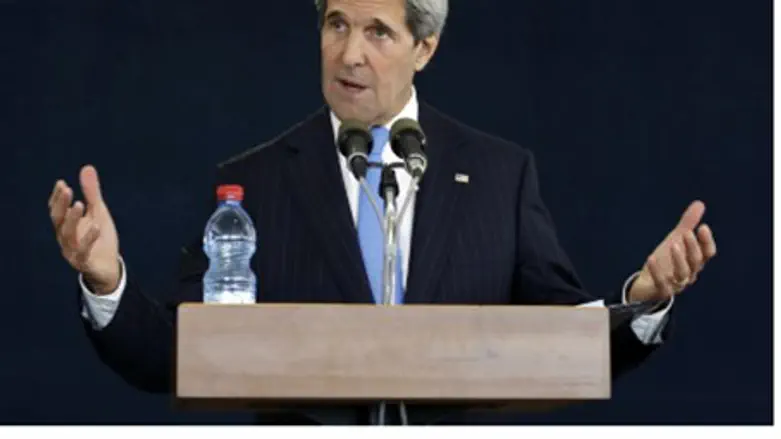
U.S. Secretary of State John Kerry believes that slapping additional sanctions on Iran at this time would be “a mistake”, according to his spokeswoman.
The comments on Tuesday by State Department spokeswoman Jen Psaki came as the White House warned U.S. lawmakers that tightening sanctions on Iran could box America into a "march to war" and derail a diplomatic push to limit Tehran's atomic program, reported AFP.
"The secretary will be clear that putting new sanctions in place would be a mistake," Psaki told reporters, referring to Kerry’s upcoming briefing of the Senate Banking Committee, scheduled for Wednesday.
"What we are asking for right now is a pause, a temporary pause in sanctions," she told reporters. "We are not rolling them back."
The Obama administration has urged the Senate to hold off on further sanctions against Iran to let diplomacy run its course. U.S. Vice President Joe Biden was among several top officials from the Obama administration who personally met Senators last week in a bid to persuade it not to impose new sanctions on Iran.
Tuesday’s warnings by both the State Department and the White House marked a significant toughening of President Barack Obama's stance towards skeptical U.S. lawmakers as he prepares to resume high-stakes nuclear diplomacy with Iran later this month.
"The American people do not want a march to war," White House spokesman Jay Carney told reporters, according to AFP.
Obama has vowed he will not allow Iran to develop a nuclear weapon, but last week intense negotiations between Iran and six world powers failed to reach an interim deal to halt its program.
This setback fuelled skepticism in Congress about the administration's plans to freeze planned new economic sanctions.
The White House warned that limiting Obama's scope to negotiate could leave him little option but a recourse to military force against Tehran's nuclear operations.
Carney said Americans "justifiably and understandably prefer a peaceful solution that prevents Iran from obtaining a nuclear weapon, and this agreement, if it's achieved, has the potential to do that.
"The alternative is military action," Carney warned.
"It is important to understand that if pursuing a resolution diplomatically is disallowed or ruled out, what options then do we and our allies have to prevent Iran from acquiring a nuclear weapon?" he said, according to AFP.
The House of Representatives has already passed a bill hardening up the sanctions, but the Senate agreed to delay further action to allow diplomacy a chance to succeed.
Both Republicans and Democrats have grown increasingly skeptical.
Kerry told the BBC on Tuesday that none of the differences between world powers and Iran over its nuclear program are big enough to prevent agreement. He said they came "extremely close" to a deal at the weekend in Geneva, but added that the rest of the world had to be certain that Iran was not pursuing a nuclear weapons program.
"We were very very close actually, extremely close," Kerry said.
While some reports said the latest talks failed because France had wanted to place tight restrictions on Iran's heavy-water plant being built in Arak, the BBC quoted “U.S. diplomats” as saying that the Iranian government's insistence on formal recognition of its "right" to enrich uranium had been the major obstacle.
Iran has denied this version of what happened. Iranian Foreign Minister Mohammad Javad Zarif responded to earlier statements in the same vein by Kerry, writing on his Twitter account that it was the United States – not Iran – that backed out of the deal.
"Mr. Secretary, was it Iran that gutted over half of U.S. draft Thursday night? and publicly commented against it Friday morning?" Zarif tweeted.

